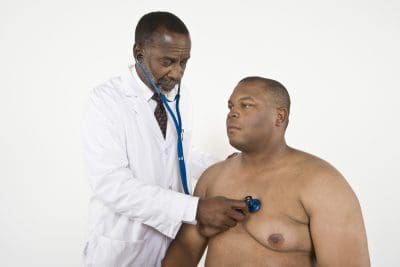Breast cancer is one of the most common cancers affecting women worldwide. Its impact reaches far and wide, touching lives in different ways, from patients and survivors to families and communities. A critical aspect of dealing with this life-altering disease is understanding the importance of early detection. Catching breast cancer in its early stages can be a lifesaver, leading to better treatment options, higher survival rates and more successful outcomes.
Early detection is not just about medical procedures or clinical appointments. It’s about empowerment, awareness and proactive health care that allows women (and men, too) to take charge of their health and increase the chances of beating breast cancer.
The urgency of early detection
Early detection of breast cancer is a game-changer. When caught early, treatment can often be less aggressive, and there is a better chance of survival. The American Cancer Society highlights that when breast cancer is detected at stage 1 or 2, the five-year survival rate is as high as 99%. This shows that early detection doesn’t just give hope; it drastically changes outcomes.
One reason early detection is so effective is that it allows health care providers to catch the cancer before it spreads. At the early stages, cancer cells are typically localized within the breast tissue, making treatments like surgery, radiation or chemotherapy more effective. As the cancer progresses to advanced stages, it can spread to lymph nodes, bones or other parts of the body, making treatment more complex and reducing the chances of a full recovery.
The tools for early detection: Regular screenings and self-exams
Regular breast cancer screenings are among the most effective ways to detect breast cancer early. This includes clinical breast exams, mammograms and, in some cases, breast MRIs. For women over 40 or those with high risk factors, health care professionals recommend regular mammograms every year or two. These screenings can identify abnormalities or changes in the breast tissue that may not be visible or palpable during a self-exam.
Self-exams are another critical tool in the early detection toolbox. Although not as accurate as clinical screenings, self-exams allow women to become familiar with the normal look and feel of their breasts. By doing monthly self-checks, they can quickly identify any changes, lumps or irregularities and seek medical advice promptly. In fact, many breast cancer survivors report discovering a lump during a self-exam, proving its life-saving potential.
Breaking down barriers to early detection
Despite the known benefits of early detection, there are still barriers that prevent some individuals from getting screened. These obstacles can include lack of access to affordable health care, cultural stigma, lack of awareness and fear of diagnosis. Additionally, some communities face disparities in access to breast cancer screenings, leaving many women without the necessary resources to detect the disease early.
To overcome these challenges, communities must foster open dialogue about breast cancer, provide access to low-cost or free screenings, and educate women on the importance of early detection. Grassroots organizations, advocacy groups and local clinics play a crucial role in bridging the gap by offering resources, education and support. The goal is to ensure that all women have equal access to life-saving early detection measures, regardless of their socioeconomic status.
The emotional and physical benefits of early detection
Finding breast cancer early not only increases the chance of survival but also reduces the emotional and physical toll on patients. When cancer is detected at an advanced stage, treatments can be more aggressive, resulting in significant side effects, longer recovery periods and a greater impact on mental health. The fear of facing complex treatments or the unknown future can be daunting.
By detecting breast cancer early, patients can often opt for less invasive treatments, shorter recovery times and experience fewer side effects. Early detection also gives patients more time to process their diagnosis, make informed decisions about their treatment options and prepare emotionally and mentally for the journey ahead. Moreover, the sooner cancer is detected and treated, the greater the possibility of returning to a healthy, fulfilling life.
Advocating for regular screenings and self-care
It is vital to advocate for the importance of early detection, not just during Breast Cancer Awareness Month, but year-round. Advocacy goes beyond wearing pink ribbons; it includes promoting regular screenings, encouraging self-exams and supporting those affected by breast cancer. This advocacy must happen at all levels – from individual conversations to community programs to health care policies that ensure screenings are accessible and affordable.
Encouraging a proactive approach to breast health is essential. This means discussing breast health openly, normalizing the practice of regular self-exams and ensuring women understand the importance of scheduling mammograms. Additionally, educating loved ones about the signs and symptoms of breast cancer can save lives. When breast cancer is caught early, it is not only treatable but manageable, giving individuals the best chance of maintaining their quality of life.
The role of lifestyle in early detection and prevention
While regular screenings and self-exams are crucial for early detection, adopting a healthy lifestyle can also play a significant role in prevention and overall well-being. Although lifestyle choices cannot completely eliminate the risk of breast cancer, they can help reduce the likelihood of developing it. Healthy habits such as maintaining a balanced diet, engaging in regular physical activity, limiting alcohol consumption and avoiding smoking are all factors that can support breast health.
Women who lead active, healthy lives are not only protecting their overall health but also empowering themselves in the fight against breast cancer. Taking charge of one’s health is a form of self-advocacy, which is vital in the early detection and treatment of breast cancer.
Stories of courage and survival
Breast cancer survivors are some of the most powerful voices when it comes to the importance of early detection. Their stories are not just tales of survival but also testimonies of resilience, hope and the impact of catching cancer early. Many survivors emphasize how early detection allowed them to seek timely treatment, minimize the invasiveness of procedures and regain control over their health.
These voices offer encouragement to others facing breast cancer or those who may be at risk. They remind us all that early detection is not just a medical term – it’s a lifeline. It’s a call to action for everyone to pay attention to their health, support loved ones in getting screened and fight against breast cancer with every available tool.
Be proactive about breast health
The message is clear: early detection is critical in the fight against breast cancer. While health care advancements have improved treatment options, the best outcomes still rely on finding cancer early. If you are at risk, over 40 or have a family history of breast cancer, talk to your doctor about scheduling regular screenings. Make self-exams a routine part of your health care practice, and never ignore any changes or unusual symptoms.
For those who may be supporting a loved one, encourage them to be proactive and stay informed about breast health. The fight against breast cancer is not just a medical battle; it is a community effort that requires support, encouragement and advocacy.
Together, we can strengthen the impact of early detection, empower individuals to take charge of their health and bring hope to the fight against breast cancer. The power to detect breast cancer early is in our hands – let’s use it to save lives.
This story was created using AI technology.
















